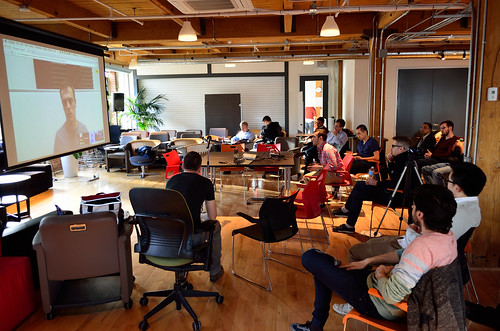The best part of my job over the last ten years has been the opportunity to visit so many different places and be able to collaborate with colleagues from all over the world. However, in the light of the dire warnings from climate scientists that we need to radically change how we use and abuse the world's limited resources (especially the recent IPCC report), the most obvious way we in education can contribute is to travel less, especially by the forms of transport that cause the highest levels of carbon emissions, namely flying.
The field of education clocks up an enormous amount of air miles per year. It's a multi-million dollar industry. International conferences are important meeting places and offer an arena for all researchers to get recognition and attention for their work. All international projects need physical meetings at the participating institutions to ensure the smooth progress of the work and to disseminate the results through local seminars or conferences. All of this involves a lot of travel for all concerned, nearly always by air. And one trip nearly always generates more contacts and then new invitations to speak at or attend more events or join yet another interesting project. There are thousands of conferences in every conceivable field every week of every year, all battling for attention and registrations.
How can we move to more climate-smart conferences and meetings? The most obvious solution is to arrange more virtual conferences but I'm not sure there is an e-meeting platform that can really create the immersive experience and socialising opportunities of on-site events. There are a few completely online conferences each year but I suspect it's extremely difficult to attract paying delegates since the mindset that online events should be free is so prevalent. The blessing and the curse of online conferences is that you can participate from the comfort of your desk. This is of course convenient and flexible but the curse is that you are also expected to work at the same time. As a result almost noone gets the experience of attending the whole conference, just dropping in now and again as work demands permit. I doubt if many bosses would give permission for you to sit at your desk for two days without doing your normal work. Another important attraction of conferences is that they allow you to switch out of work mode for a couple of days to learn new things and network with others in your field. The advantages of the on-site meeting are many but if the threat of radical climate change is to be met, then we simply can't go on meeting like this. At least not as default.
Virtual conferences, however, could be an opportunity to widen the scope and diversity of academic events. One of the main attractions of academic conferences is to give researchers the chance to present their papers. This is fine if you study at a wealthy university but what about researchers from developing countries? There are plenty of good research projects going on that never come to light because the researchers can't get funding to attend the high profile (and often expensive) conferences in Europe and North America. Tighter visa requirements make it simply impossible for academics from certain countries to travel anywhere. If we take the travel and accommodation out of the equation then we would open up participation to a much more diverse community.
Another opportunity for virtual conferences is offering greater linguistic diversity and giving a voice to everyone who has not mastered spoken English. In an online environment it becomes easier and cheaper to offer simultaneous interpretation of speeches in other languages, either by automatic voice to text translation or by human interpreters who can work from home wherever they may be. I've heard many good research presentations ruined by the speaker's low level of English as they read nervously through a complex manuscript. had we let them present in their native language with an interpreter we would have got a totally different impression of the research and the presenter. In an online environment we can easily add back channels for discussion and questions as well as offering participants the opportunity to discuss in smaller break-out groups.
All this requires a rethink of why we have conferences and new attitudes to how we can exploit online learning spaces. We could cut the number of on-site events if we want to but we need to do some experimentation and dare to innovate. Of course it won't be the same. But it doesn't have to be a poor alternative, it could offer many new opportunities. The main point is we may not have a choice in the near future.

No comments:
Post a Comment
Note: Only a member of this blog may post a comment.